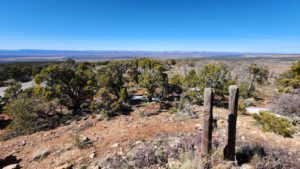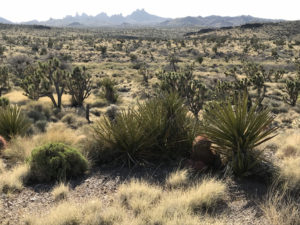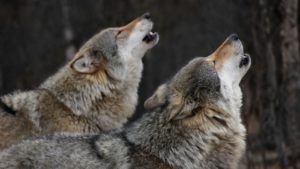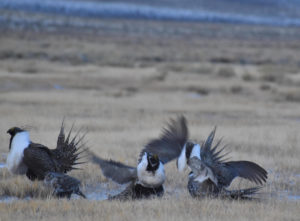For Immediate Release, July 23, 2020
Contact:
Sophia Ressler, Center for Biological Diversity, (206) 399-4004,
sressler@biologicaldiversity.org
Nick Cady, Cascadia Wildlands, (314) 482-3746, nick@cascwild.org
Jocelyn Leroux, Western Watersheds Project, (406) 960-4164,
Samantha Bruegger, WildEarth Guardians, (970) 363-4191,
sbruegger@wildearthguardians.org
SEATTLE— Conservation groups petitioned Gov. Jay Inslee today to order the Washington Fish and Wildlife Commission to draft enforceable rules that limit when the state can kill endangered wolves for conflicts with livestock.
Today’s appeal, filed by the Center for Biological Diversity, Cascadia Wildlands, Western Watersheds Project and WildEarth Guardians, seeks a reversal of the commission’s June 26 denial of the groups’ formal petition for wolf-management rules.
“The state’s constant killing of wolves shows that the current system is completely broken,” said Sophia Ressler, a Washington wildlife advocate and staff attorney at the Center. “New rules would save wolves, prevent livestock losses and provide the accountability the people of Washington deserve in the management of our endangered wolves.”
The state has killed 31 wolves since 2012, 26 of those for the same livestock operator in the Kettle River Range in northeast Washington.
In late June the Washington Department of Fish and Wildlife issued a kill order on the Togo pack, and just this morning announced a kill order on the Wedge pack, also in northeast Washington. Agency staff recognize that this high-conflict area is prime wolf habitat. If enforceable requirements to use proactive deterrence measures aren’t implemented, conflict with wolves will continue, today’s appeal says.
The groups proposed a mix of new and amended rules that would provide clarity to the agency, livestock operators and the public. The amended rules would require that livestock operators use appropriate nonlethal deterrence methods to prevent conflict between livestock and wolves. The new rules would ensure that the state kills wolves only as a last resort.
“These are common sense rules that incentivize livestock producers to use non-lethal, preventative measures and encourage these producers to enter cooperative agreements with the Department,” said Nick Cady, Legal Director of Cascadia Wildlands. “To be clear, livestock operators have the right to defend their own animals, but if they want the state to use public dollars to kill wolves on their behalf, these operations are going to have to play ball.”
“Livestock producers must manage their cows to reduce conflict with wolves, and this requirement should be welcomed by the Department,” said Jocelyn Leroux, Washington/Montana Director of Western Watersheds Project. “These rules are necessary so the Department can manage the wildlife they are tasked with protecting for a healthy, flourishing population across their native range.”
“Unfortunately, for Washington, the stakeholder process is broken, with the WAG giving disproportionate power to ranching and hunting interests. This has silenced the voices of the public, and created a system where common-sense rules, and modern science, can simply be voted down or completely ignored,” said Samantha Bruegger, Wildlife Coexistence Campaigner at WildEarth Guardians. “It is critical to initiate rulemaking to repair the impossible situation the WAG has created.”
The governor has 45 days to make a decision. Gov. Inslee could overrule the commission’s decision and require that a rulemaking be initiated, which would open a comment period to seek public input on new rules.
###
The Center for Biological Diversity is a national, nonprofit conservation organization with more than 1.7 million members and online activists dedicated to the protection of endangered species and wild places.
Cascadia Wildlands defends and restores Cascadia’s wild ecosystems in the forests, in the courts, and in the streets. We envision vast old-growth forests, rivers full of salmon, wolves howling in the backcountry, and vibrant communities sustained by the unique landscapes of the Cascadia bioregion.
Western Watersheds Project is a nonprofit environmental conservation group working to protect and restore wildlife and watersheds throughout the American West.
WildEarth Guardians (www.wildearthguardians.org) is a conservation nonprofit whose mission is to protect and restore the wildlife, wild places, wild rivers, and health of the American West. Guardians has offices in Arizona, Colorado, Idaho, Montana, New Mexico, Oregon and Washington, and over 278,000 members and supporters worldwide.
####





